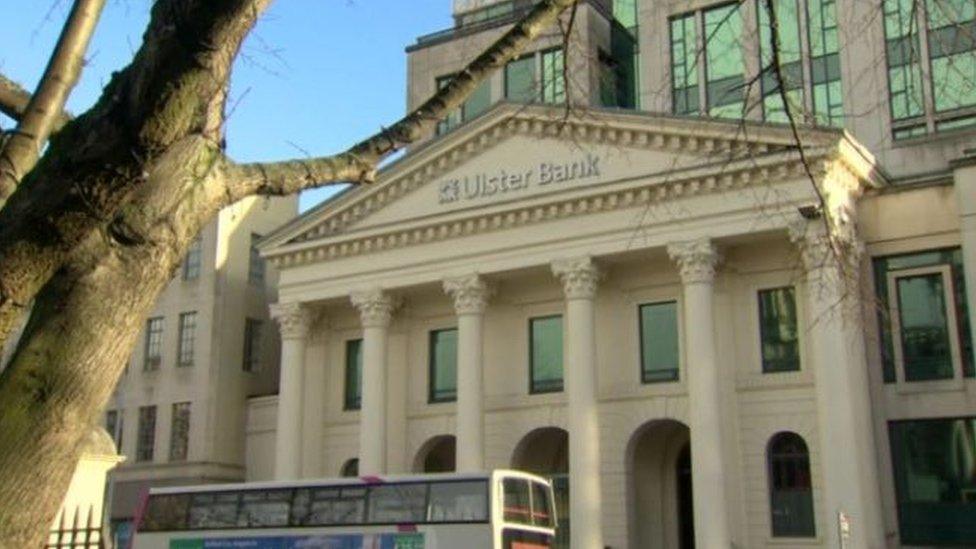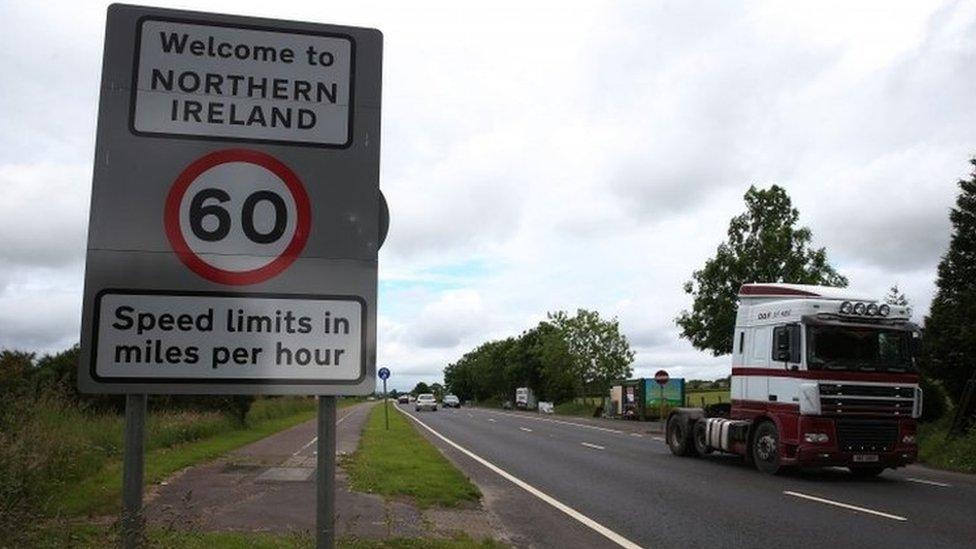NI firms see steep decline in export orders
- Published
- comments

Ulster bank's chief economist suggests the February performance reflects "peak uncertainty" over Brexit
Northern Ireland firms saw their steepest decline in new export orders in more than five years during February, Ulster Bank research has suggested.
The bank provides a monthly survey of private sector activity.
Its research is considered to be a reliable indicator of the economy.
The latest survey also suggests companies reduced their staffing levels for the second month running.
The bank's chief economist suggests the February performance reflects "peak uncertainty" over Brexit.
'Marked deterioration'
Richard Ramsey said: "Private sector firms saw a marked deterioration in business conditions.
"We saw output growth almost grinding to a halt, employment falling, new orders decreasing, and export orders falling at their fastest pace in 69 months."
The services sector, which is the largest part of the economy, continued to expand; manufacturing was flat with falls in activity for construction and retail.
The data also suggests that manufacturing firms have been stockpiling both inputs and finished goods over the past three months.
Mr Ramsey said the weakening performance cannot be solely attributed to Brexit-related uncertainty.
'Economic slowdown'
"There are other factors at play, including the wider economic slowdown across Europe, concerns over global trade, and the ongoing restructuring of the retail sector."
Meanwhile, Intertrade Ireland, the cross-border trade promotion body, has reported a surge in applications for its Brexit planning vouchers.
The vouchers provide up to £2,000 towards professional advice and up to £2,500 towards implementing critical business changes.
The scheme was launched in 2017, but a third of all applications have come since the start of this year.
Aidan Gough from Intertrade Ireland said: "As we move closer to the March 29th deadline, the message is that it's still not too late to make preparations."
- Published5 March 2019
